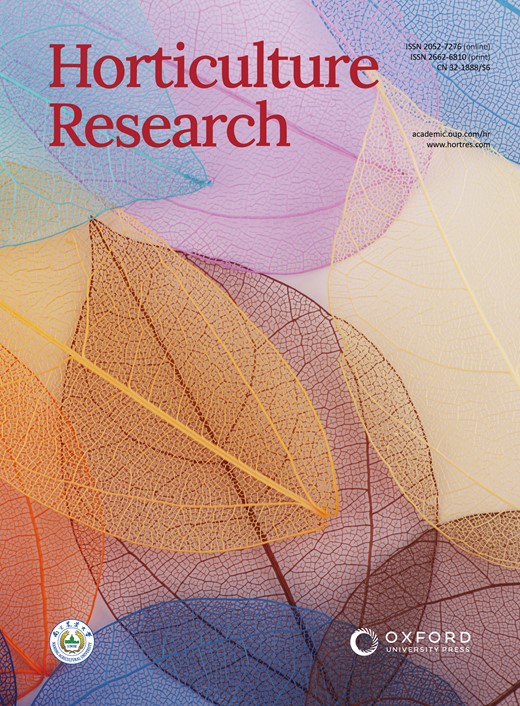苜蓿基础生物学研究进展综述
IF 8.7
1区 农林科学
Q1 Agricultural and Biological Sciences
引用次数: 0
摘要
紫花苜蓿(Medicago sativa L.)是一种多年生豆科牧草,由于具有生态适应性强、营养价值高、适口性好、固氮能力强等多种有利特性,已被广泛种植。紫花苜蓿的生产力性状,特别是其生物量产量和饲料品质,受到一系列决定因素的显著影响,包括内部发育因素和外部环境线索。然而,紫花苜蓿基本生物学问题背后的调控机制仍然难以捉摸。在此,我们对紫花苜蓿的基因组学、基因编辑技术的进展以及控制生物量形成、营养质量、开花时间和抗各种胁迫等关键农艺特性的基因进行了全面综述。此外,还提出了 "理想紫花苜蓿 "的分子设计路线图,并进一步讨论了泛基因组、自相容性机制、从头驯化和智能育种策略在提高紫花苜蓿产量、质量和抗逆性方面的潜力。本综述将提供有关紫花苜蓿基础生物学的全面信息,并为培育理想的紫花苜蓿提供新的见解。本文章由计算机程序翻译,如有差异,请以英文原文为准。
Advances in basic biology of alfalfa (Medicago sativa L.): a comprehensive overview
Alfalfa (Medicago sativa L.), a perennial legume forage, has been broadly cultivated owing to a variety of favorable characteristics, including comprehensive ecological adaptability, superior nutritive value and palatability, and nitrogen fixation capacity. The productivity traits of alfalfa, specifically its biomass yield and forage quality, are significantly influenced by a series of determinants, including internal developmental factors and external environmental cues. However, the regulatory mechanisms underlying the fundamental biological problems of alfalfa remain elusive. Here, we conducted a comprehensive review focusing on the genomics of alfalfa, advancements in gene-editing technologies, and the identification of genes that control pivotal agronomic characteristics, including biomass formation, nutritional quality, flowering time, and resistance to various stresses. Moreover, a molecular design roadmap for the "ideal alfalfa" has been proposed and the potential of pangenomes, self-incompatibility mechanisms, de novo domestication, and intelligent breeding strategies to enhance alfalfa's yield, quality, and resilience were further discussed. This review will provide comprehensive information on the basic biology of alfalfa and offer new insights for the cultivation of ideal alfalfa.
求助全文
通过发布文献求助,成功后即可免费获取论文全文。
去求助
来源期刊

Horticulture Research
Biochemistry, Genetics and Molecular Biology-Biochemistry
CiteScore
11.20
自引率
6.90%
发文量
367
审稿时长
20 weeks
期刊介绍:
Horticulture Research, an open access journal affiliated with Nanjing Agricultural University, has achieved the prestigious ranking of number one in the Horticulture category of the Journal Citation Reports ™ from Clarivate, 2022. As a leading publication in the field, the journal is dedicated to disseminating original research articles, comprehensive reviews, insightful perspectives, thought-provoking comments, and valuable correspondence articles and letters to the editor. Its scope encompasses all vital aspects of horticultural plants and disciplines, such as biotechnology, breeding, cellular and molecular biology, evolution, genetics, inter-species interactions, physiology, and the origination and domestication of crops.
 求助内容:
求助内容: 应助结果提醒方式:
应助结果提醒方式:


